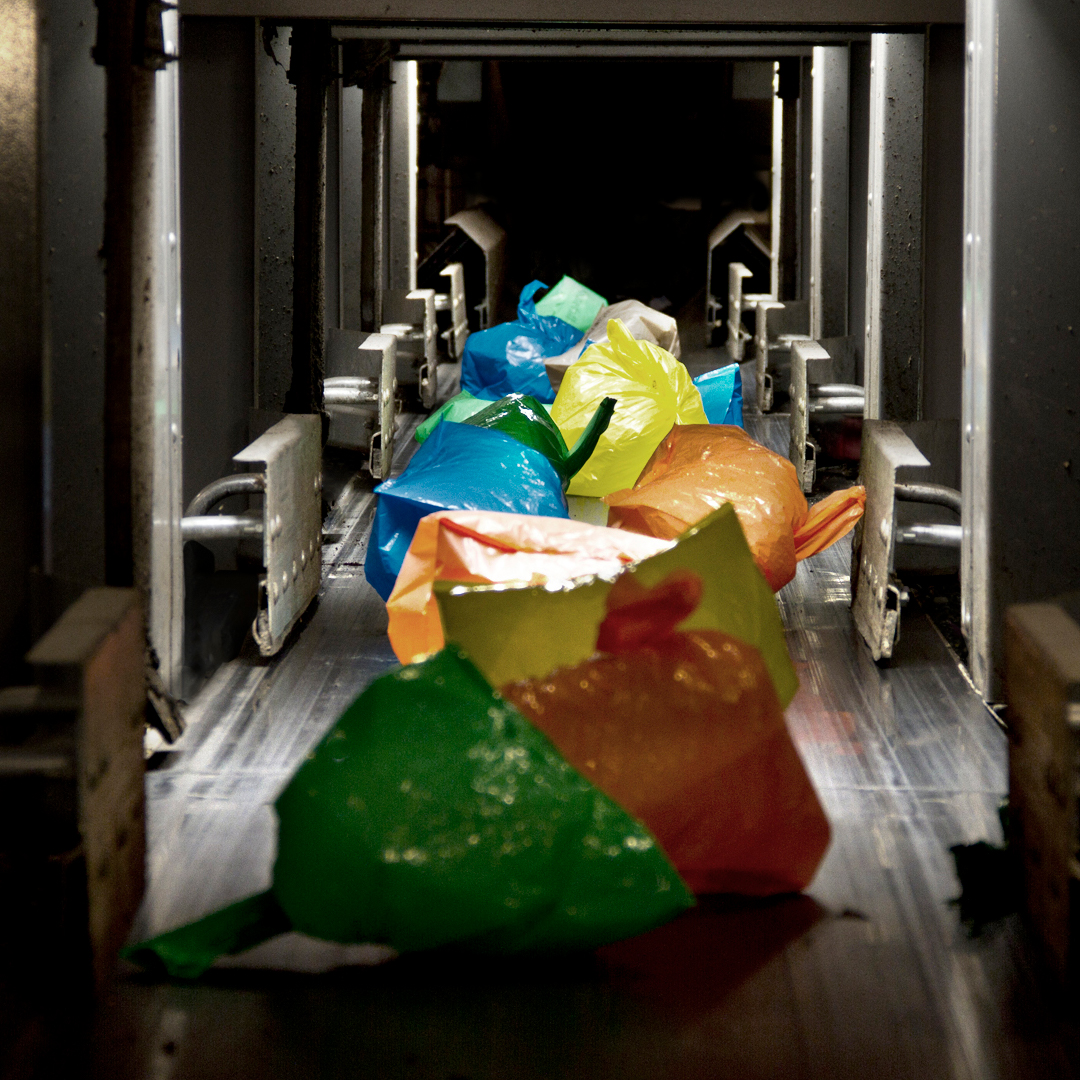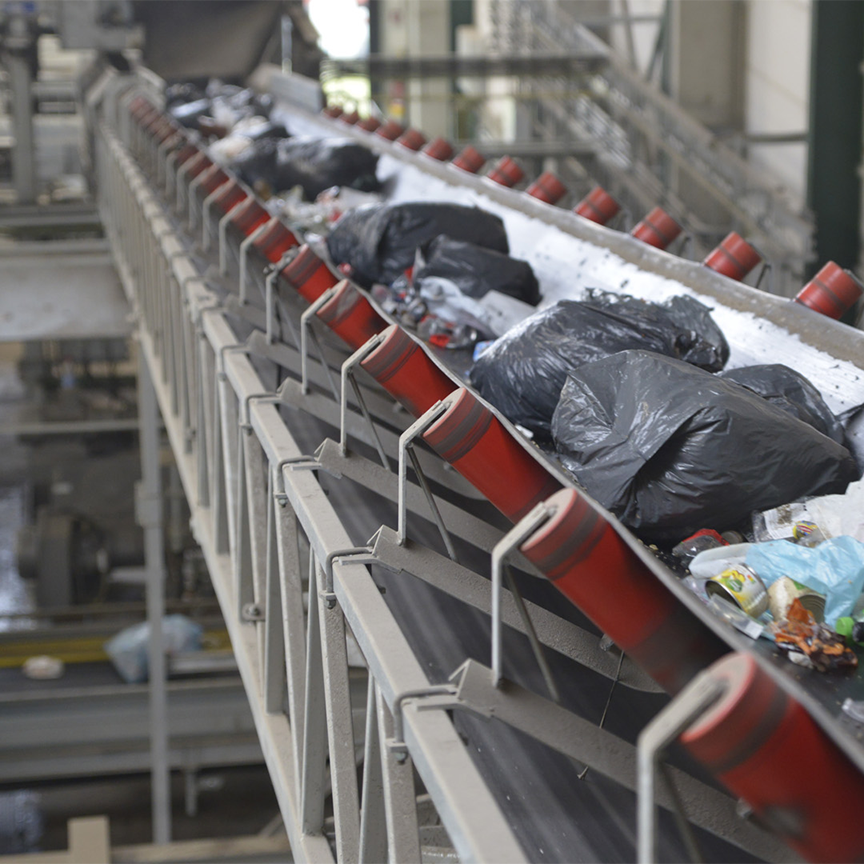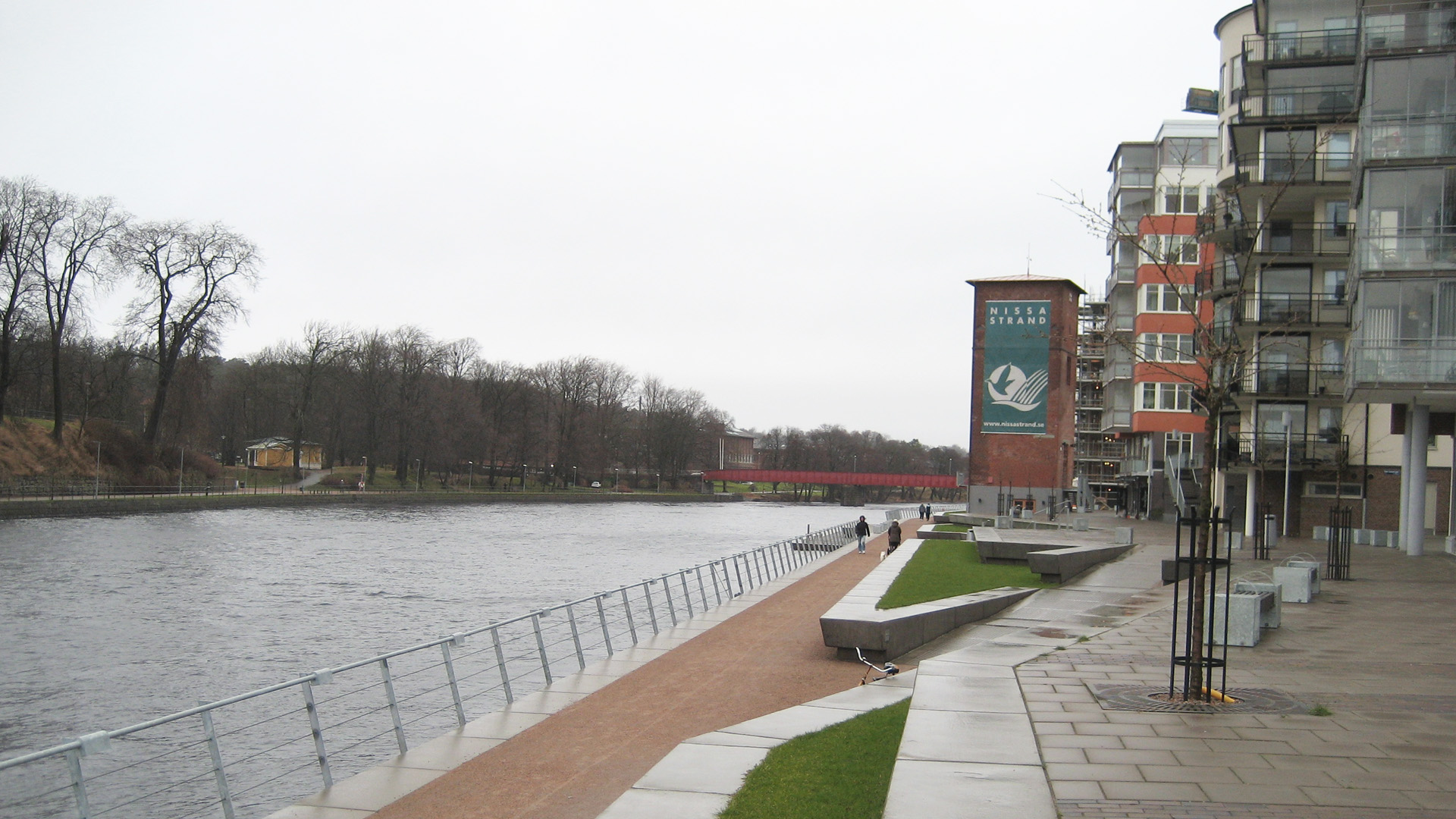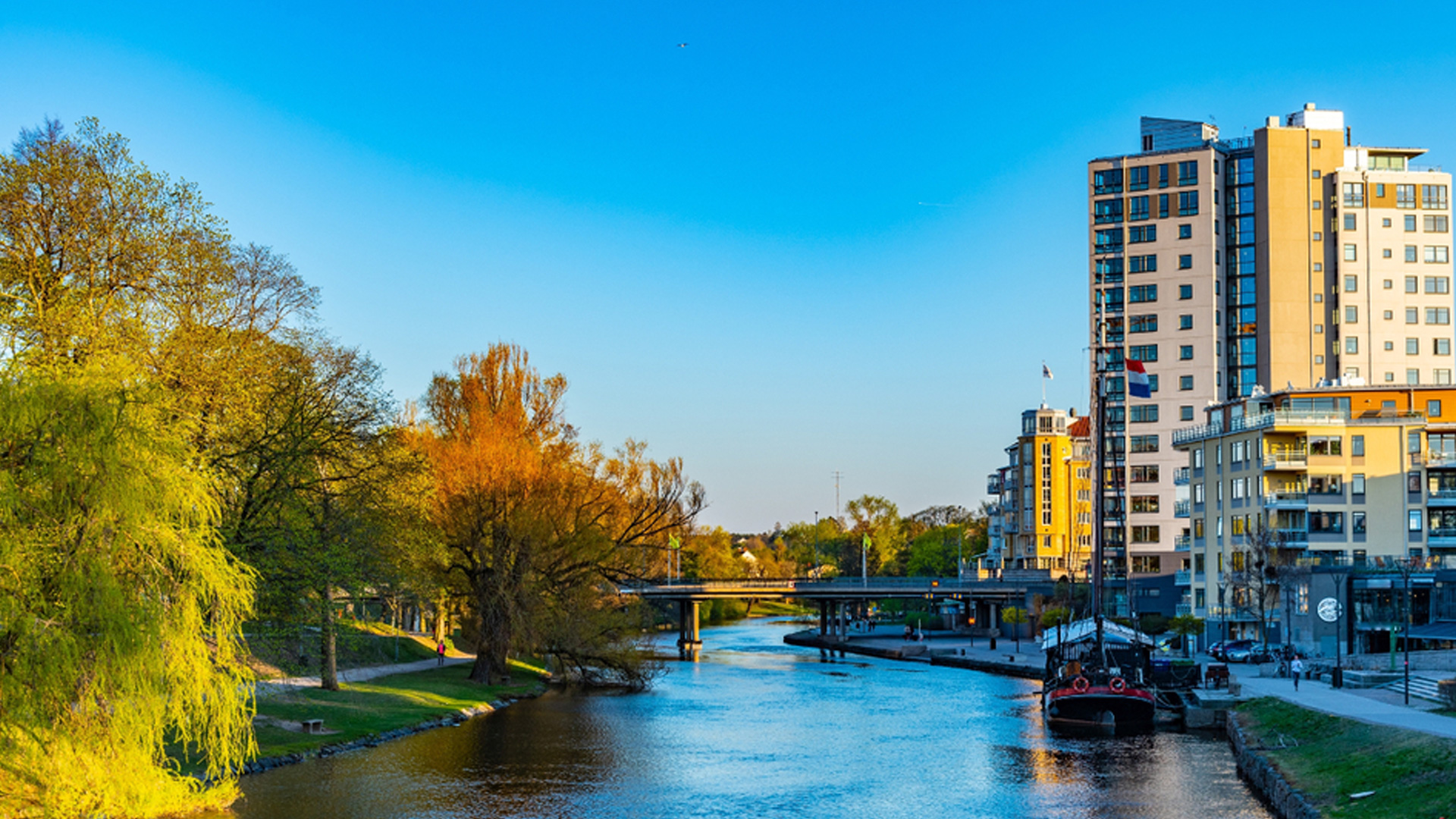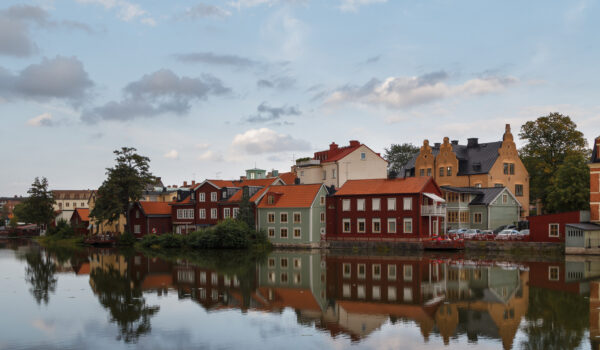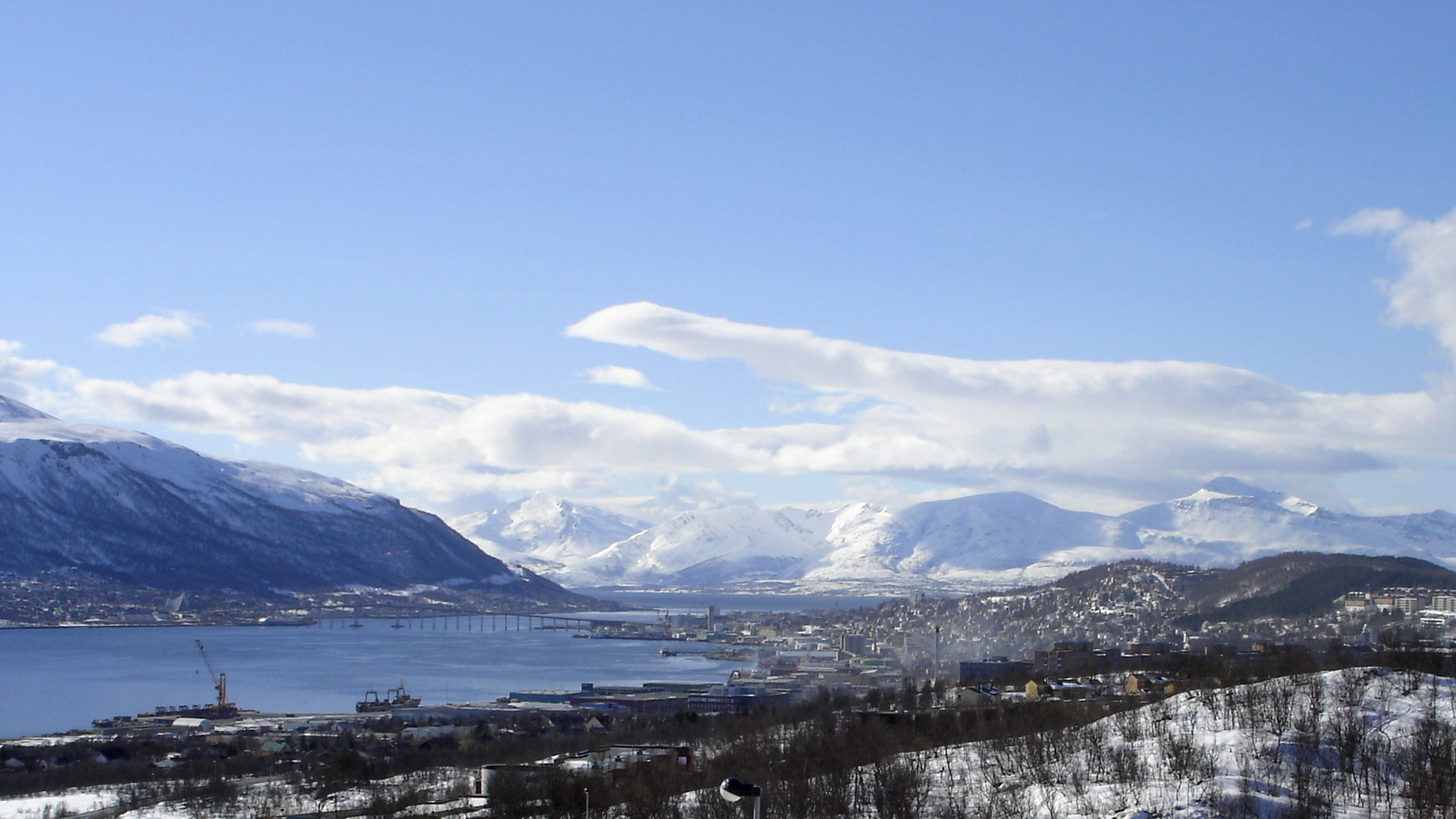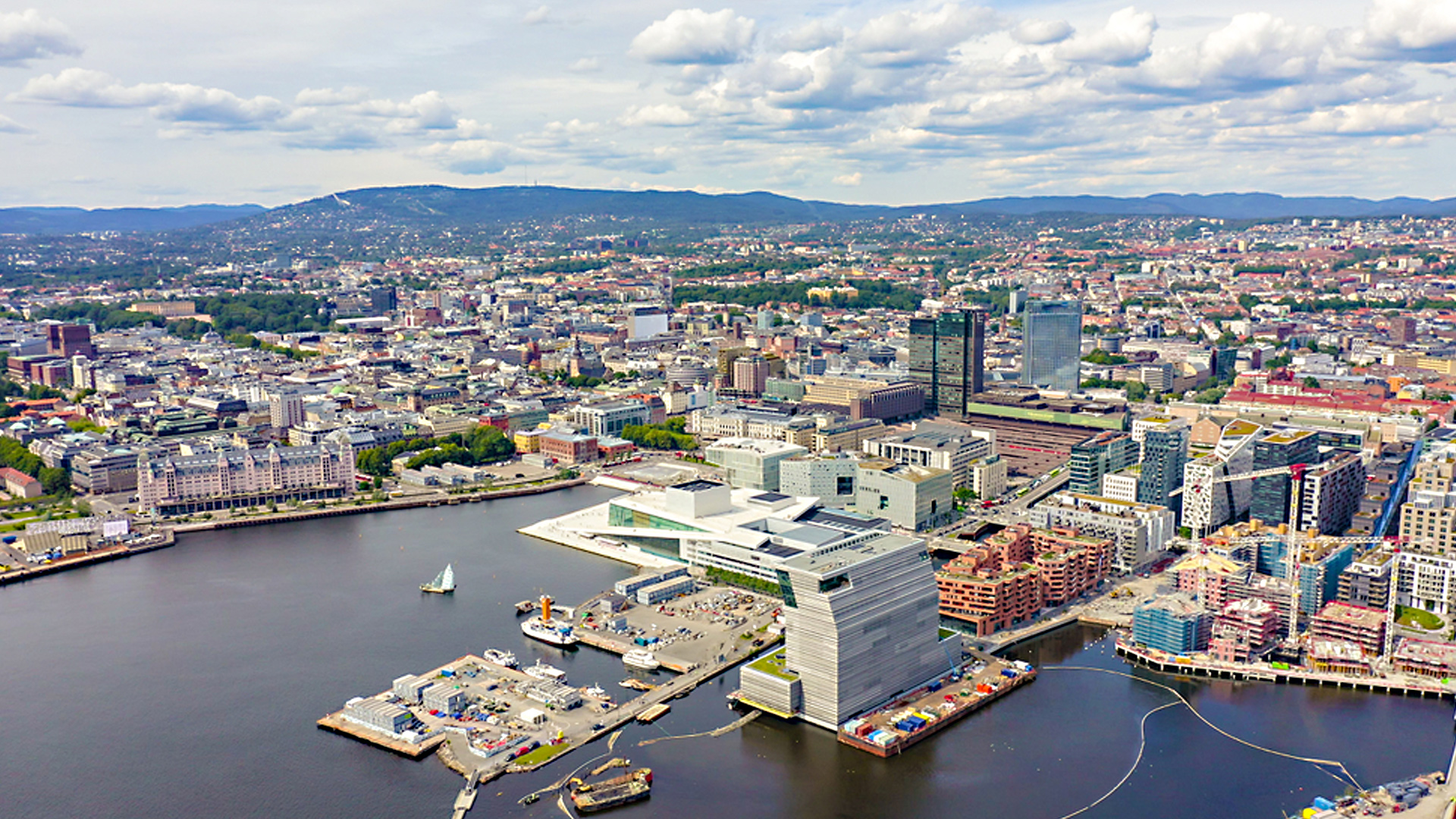Sorting
Optical sorting facilities for household waste are advanced systems designed for cost-efficient waste collection and sorting. This technology relies on households source-separating their waste and recyclables into bags of different colours. All bags are collected in one single bin, eliminating the need for additional routing and the already-in-place infrastructure can still be used.
At a central sorting facility, the bags are identified by their colour and diverted from the residual waste stream using cameras and sorting robots. The separated waste fractions are subsequently processed into biomethane or sent to other recycling facilities to produce raw feedstock for new products.
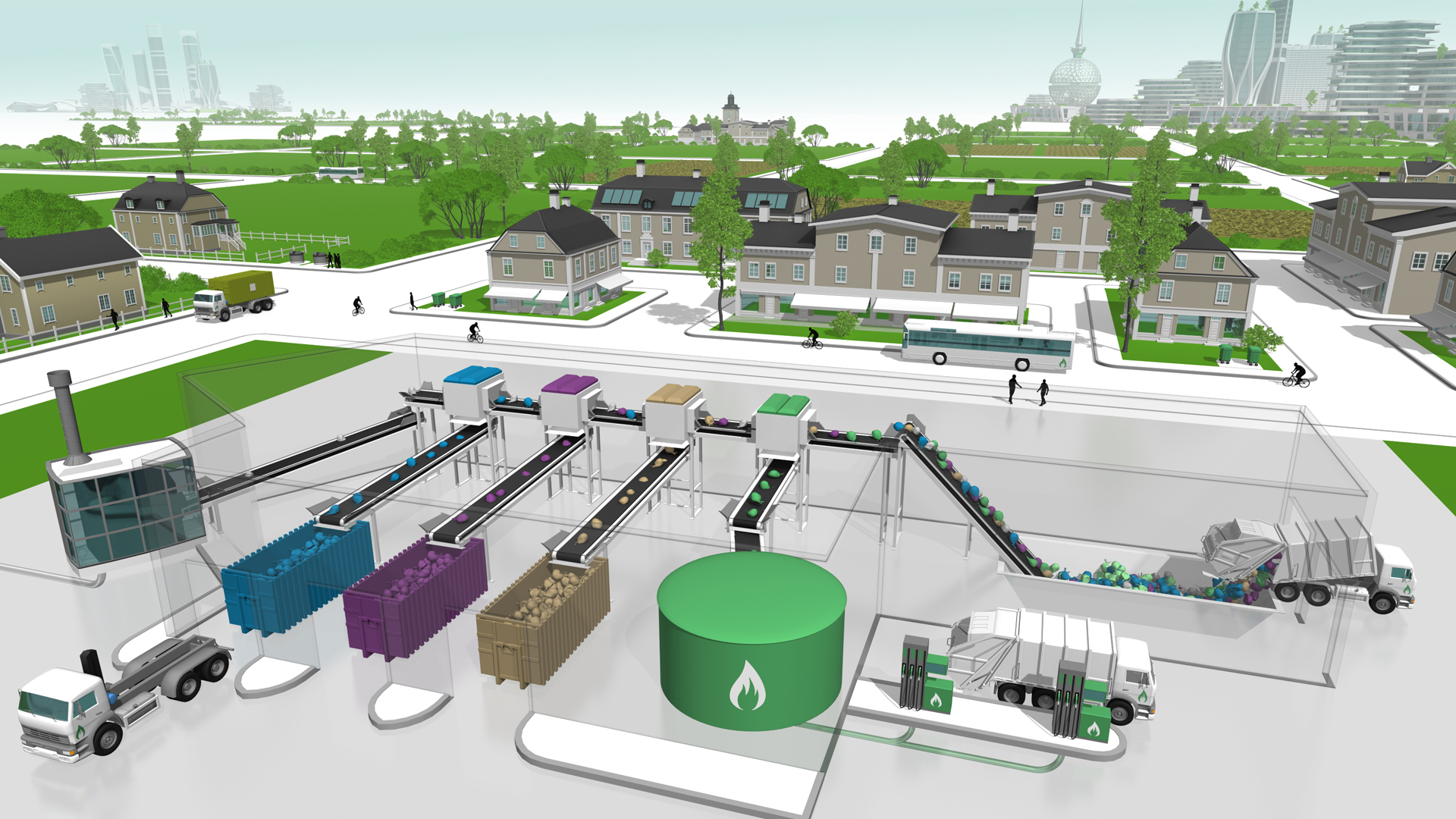







Sorting at home
Households separate their waste into different fractions at home, in bags with different colours. One colour for one fraction.Easily maintained
All bags are disposed in the same bin. The bin is emptied using one truck only.Recycling facility
The bag as are brought to a central recycling facility. From the waste bunker, the bags are transferred via conveyor belts to the optical sorting stations where the bags are separated according to their colour.Recycling
At the end of the sorting process, the sorted fractions are collected in a large container. From here they are transported by truck or train to a material recycling facility to they can be brought back into usage.Waste to fuel
Organic waste is transferred to a digetion facility to produce enviromentally friendly bio-methane whitch drives the waste truck. No need for fossil diesel fuel.
Residual waste
Residual waste, i.e. all waste that cannot be material recycled, is brought to an incineration facility where it used as fuel to produce central heat and power. In countries, where waste incineration is not applied, it is landfilled.Waste Collection
Envac Sorting can be used with manual collection equipment or with an automated waste collection system. The same sorting plant is used no matter the collection method..
Projects

Recycling lies at the heart of a circular economy, but old and traditional methods are both challenging and costly. In contrast, our optical sorting solutions can be used by cities of all sizes and reduces transport and collection costs by at least 50% compared to competing systems.




